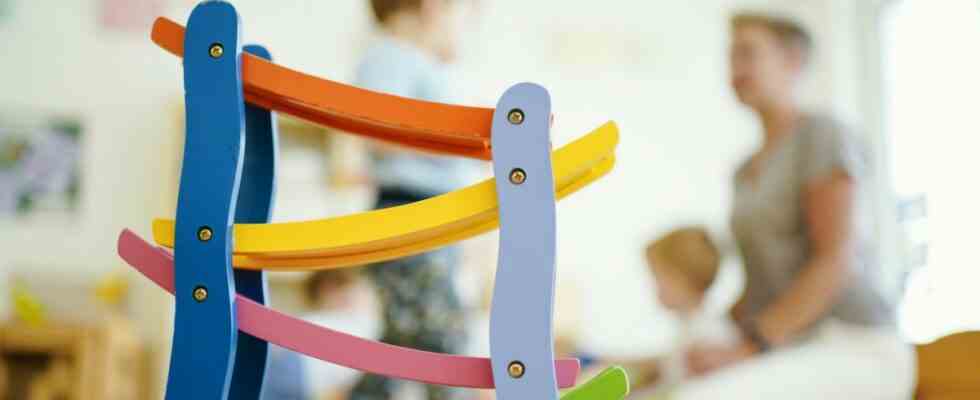More than 700 minors who have fled Ukraine are currently living in the district – and are supposed to go to schools and kindergartens or crèches here, at least temporarily. A challenge for the municipalities and the district, especially with regard to the autumn, when, as the head of the youth welfare office, Florian Robida, reported in the most recent youth welfare committee, 138 of them are entitled to a daycare place. The situation is aggravated by the change in the legal basis for benefits for people from Ukraine. Since June, the Asylum Seekers Benefits Act no longer applies to them, but they are classified according to SGB II, so that they can be treated by the job centers as normal job seekers. Job seekers, many of whom are women who have fled without a spouse. But they can only work if their children are taken care of during this time.
So far, the providers and communities in the district have responded to the sudden need with so-called bridge care offers, Robida reported, i.e. low-threshold offers that on the one hand introduce the Ukrainian children to the German facilities and on the other hand give the municipalities time for medium-term and extended care worries. These include parent-child groups, play groups, language courses for young people as well as opportunities for soccer training, playrooms, open meetings, accommodation in after-school care centers or all-day care.
“There are no places to reserve,” says Florian Robida
However, these are not full-fledged childcare places, and “there are no places to be kept in reserve,” said Robida at the meeting. In order to create such opportunities, however, there is once again a lack of support staff. For example, Markt Schwaben and Steinhöring, where six and four children of the appropriate age respectively live, could provide the rooms, but have no teachers.
A problem that, in the eyes of those responsible in the district of Ebersberg, could be solved pragmatically by looking for people with educational experience or appropriate training among the refugees. However, a concept for a large day care, written by the Ebersberg youth welfare office, failed due to the veto of the Ministry of Social Affairs. Ukrainian educators should therefore present at least proof of German language skills according to B2 in order to meet the standards of BayKiBig (Bavarian law on education and upbringing). Quite apart from written proof of professional qualifications.
Specifications that do not necessarily meet with understanding in the district office. “If Ukrainian women take care of Ukrainian children, then, in my opinion, the language barrier problem is solved,” said district administrator Robert Niedergesäß (CSU). In a meeting of the district day with his party friend, the responsible minister Ulrike Scharf on Wednesday, an attempt was made in vain to come to a more pragmatic approach to the subject. “By carrying our Bavarian standards in front of us, we don’t do justice to the problem,” complained Niedergesäß. For example in Vaterstetten, where, as the second mayor Maria Wirnitzer (SPD) reported, 28 children need care in September. “We don’t know how to solve it.”
It is hoped that the ministry will ease the requirements
It is agreed that an enlargement of the existing groups cannot be the solution, not even temporarily. After two and a half years of the corona pandemic, the educational staff is particularly burdened by failures and protective measures. Many even changed jobs, explained Christian Salberg from the youth welfare office.
Of course, they don’t want to just throw the achievements of the BayKiBig overboard, the high standards are “great for children,” said Florian Robida. “But we know that many Ukrainians are going back. They simply want their children to be looked after here.” The youth welfare office and district office are now in constant contact with the providers, since there are vacant premises in the district. And at the same time, one hopes for lighter requirements from the ministry.

